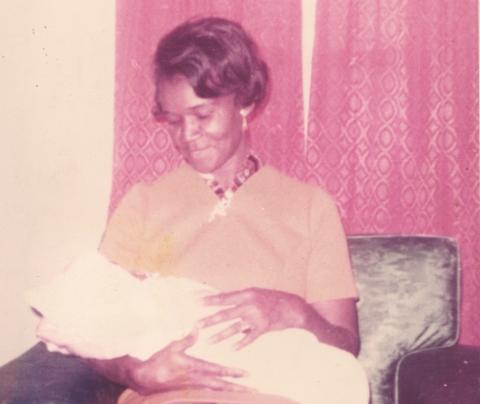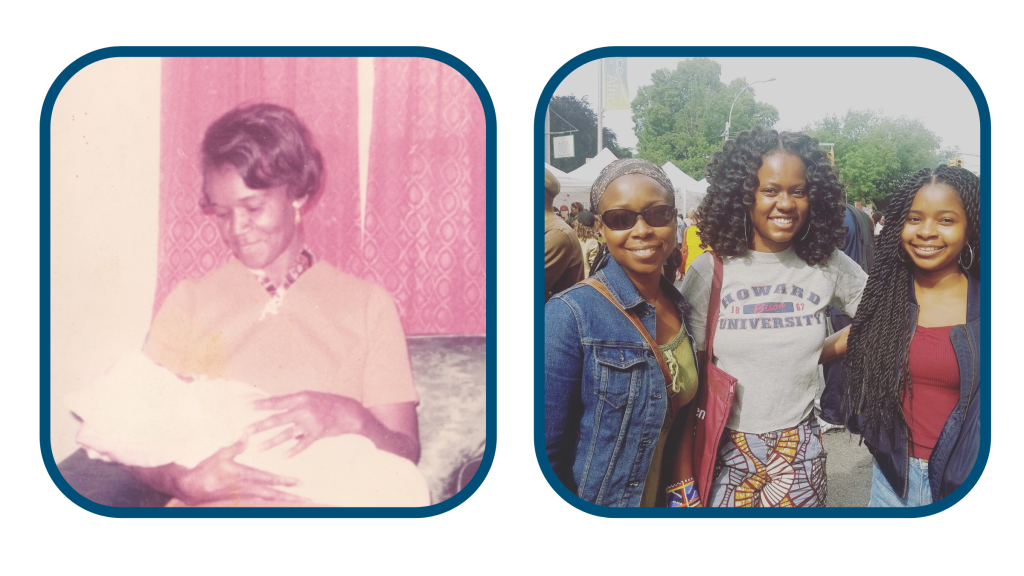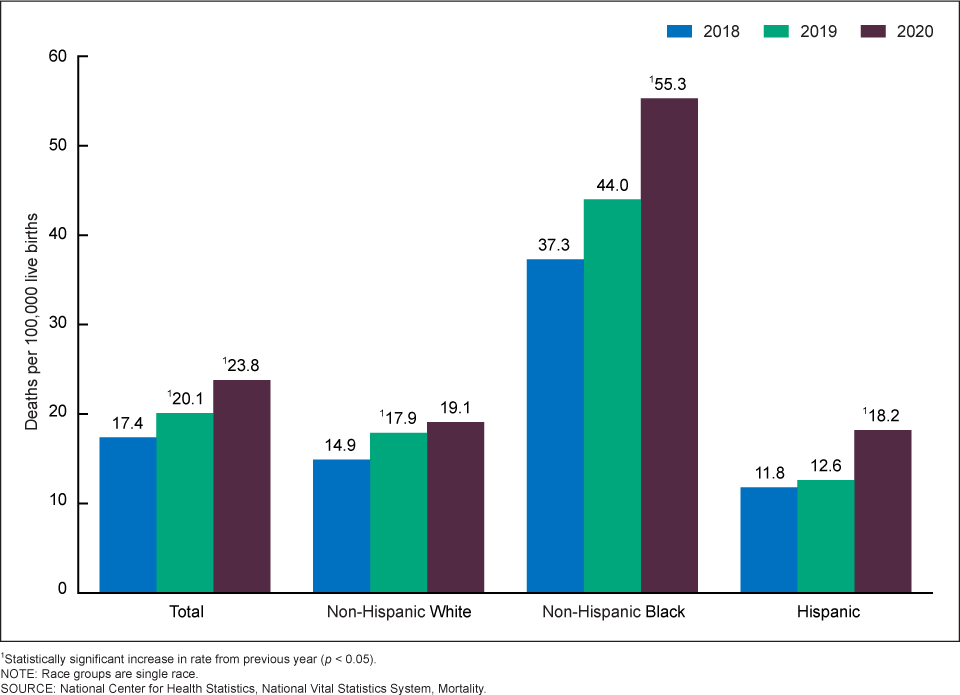
Black Maternal Deaths Climb During COVID According to CDC
The United States is the most dangerous place to give birth in the developed world. Major racial disparities exist where Black women lose their lives at 3 to 4 times the rate of white women due to maternity-related causes, independent of age, economic background, or education, a fact that has done unchanged for several decades. Indigenous women experience a similar maternal mortality rate. These disparities have historic roots stemming back to slavery, legal medical apathied, and ongoing systemic racism.
Not surprisingly, the CDC released a new report that in 2020 there was a spike in maternal deaths, particularly among Black women.
My own grandmother nearly died giving birth to my uncle in the 1940s. Everyone in my family knows about her near-fatal experience while in labor. She had no access to prenatal care in their small Texas town.
Ultimately, when the time came for her to deliver, she was hospitalized in critical condition– ironically, at a place where months before she was refused care because she was Black.
The days when hospitals legally refused to treat Black and Indigenous moms and families may be over, but the disparities live on. Decades later, I worry that my friends, nieces, and daughters might also have a dangerous birthing experience. The grim disparities for Black women persist and now, have grown!
Black doulas, midwives, advocates, and doctors are tackling this crisis head on. Around the country, health workers and community members are mobilizing to support Black and Indigenous pregnant people, demanding that hospitals and health systems do better, and educating policy makers on the solutions that matter. If we’re going to save our moms, we need everyone to be a part of the solution and we need a nation-wide intervention.
We need leaders to take action and pass the Black Maternal Health Momnibus!! This packet of legislation takes urgent, serious action to end this crisis by building on existing legislation in Congress to comprehensively address every dimension of America’s maternal health crisis.
This packet is composed of nine individual bills sponsored by members of the Black Maternal Health Caucus and Senator Kamala Harris. The legislation will take historic steps forward to:
- Make critical investments in social determinants of health that influence maternal health outcomes, like housing, transportation, and nutrition;
- Provide funding to community-based organizations that are working to improve maternal health outcomes, particularly for Black women;
- Comprehensively study the unique maternal health risks facing women veterans and invest in VA maternity care coordination;
- Grow and diversify the perinatal workforce to ensure that every mom in America receives maternity care and support from people she can trust;
- Improve data collection processes and quality measures to better understand the causes of the maternal health crisis in the United States and inform solutions to address it;
- Invest in maternal mental health care and substance use disorder treatments;
- Improve maternal health care and support for incarcerated women;
- Invest in digital tools like telehealth to improve maternal health outcomes in underserved areas;
- Promote innovative payment models to incentivize high-quality maternity care and continuity of health insurance coverage from pregnancy through labor and delivery and up to 1 year postpartum.
Tthe Black Maternal Health Momnibus can make a real difference. This packet of legislation takes urgent, serious action to end this crisis by building on existing legislation in Congress to comprehensively address every dimension of America’s maternal health crisis.




The views and opinions expressed in this post are those of the author(s) and do not necessarily reflect those of MomsRising.org.
MomsRising.org strongly encourages our readers to post comments in response to blog posts. We value diversity of opinions and perspectives. Our goals for this space are to be educational, thought-provoking, and respectful. So we actively moderate comments and we reserve the right to edit or remove comments that undermine these goals. Thanks!